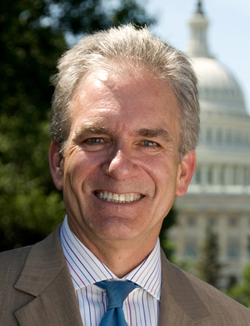By Bob Allen
Two Baptist experts in religious liberty law say the U.S. Supreme Court’s interpretation of a 1993 federal law intended to bolster religious freedom in the recent Hobby Lobby decision could set a precedent for future rulings applying the statute in ways contrary to its legislative intent.
 Hollyn Hollman, general counsel of the Baptist Joint Committee for Religious Liberty, and Executive Director Brent Walker analyzed the 5-4 ruling handed down June 30 that the for-profit craft-store chain does not have to offer health insurance coverage for types of birth control that conflict with company owners’ religious beliefs. The analysis appears in the July/August edition of Report from the Capital. A combined analysis was posted Aug. 15 on the ABPnews/Herald web site.
Hollyn Hollman, general counsel of the Baptist Joint Committee for Religious Liberty, and Executive Director Brent Walker analyzed the 5-4 ruling handed down June 30 that the for-profit craft-store chain does not have to offer health insurance coverage for types of birth control that conflict with company owners’ religious beliefs. The analysis appears in the July/August edition of Report from the Capital. A combined analysis was posted Aug. 15 on the ABPnews/Herald web site.
Hollman said as the leader of the coalition that pushed for passage of the Religious Freedom Restoration Act more than 20 years ago, the Washington-based education and advocacy organization “has a significant stake in its interpretation and application.”
From the BJC’s perspective, Hollman said, the law’s strength is that it balances free-exercise and other interests. That means religious claimants will not always win, but they have a fighting chance to avoid unnecessary interference by the government in the free exercise of their faith.
Hollman said the application reflected in Justice Anthony Kennedy’s concurring opinion suggesting an answer to the employers’ religious-liberty concern without depriving employees of health care benefits “is the kind of win-win solution RFRA should provide.” But she said “there is ample room for concern” in Justice Samuel Alito’s 41-page majority opinion about future rulings that might undermine the balancing act that RFRA was intended to preserve.
Hollman said the Supreme Court “was properly deferential” in recognizing the Christian owners of Hobby Lobby acted out of “sincerely held” religious beliefs in objecting to paying for coverage of emergency contraceptives and IUDs they believe cause an abortion. But she said the court was “too quick” in finding that objection amounted to a “substantial” burden on their religious liberty, a key standard in the law intended to restore protections stripped in a 1990 Supreme Court decision that prompted the RFRA coalition.
 Walker, both an attorney and ordained minister who served as BJC general counsel before succeeding James Dunn as executive director in 1999, said the five-member majority “gave short shrift to the question of whether any burden on the exercise of religion is ‘substantial’ and ignored the real effects of the requested free exercise accommodation on the corporation’s employees desiring insurance coverage for contraception services.”
Walker, both an attorney and ordained minister who served as BJC general counsel before succeeding James Dunn as executive director in 1999, said the five-member majority “gave short shrift to the question of whether any burden on the exercise of religion is ‘substantial’ and ignored the real effects of the requested free exercise accommodation on the corporation’s employees desiring insurance coverage for contraception services.”
Walker said the court was correct to be sensitive to religious liberty issues in the secular marketplace, including some for-profit corporations.
“Although one could reasonably argue against a corporate behemoth as large as Hobby Lobby — with 16,000 employees — there should be some protection for closely held ‘mom and pop’ businesses, even when conducted through the corporate fiction,” Walker said.
He said the court also ignored its own precedent that adverse effects of religious accommodation on third parties can violate the First Amendment’s Establishment Clause.
Hollman said when fighting for passage of RFRA in the early 1990s, nobody had the interests of large, for-profit corporations in mind. Neither did the legislative debates anticipate the Affordable Care Act, and the debate between medical importance and religious objection to certain kinds of birth control.
While legislative fixes are already being debated, Walker said the BJC “will look askance” at attempts to amend RFRA.
“We have too much invested in it to allow one court decision, for better or worse, to prompt an emasculation of that very important statutory protection for religious liberty,” he said.
Previous story:
